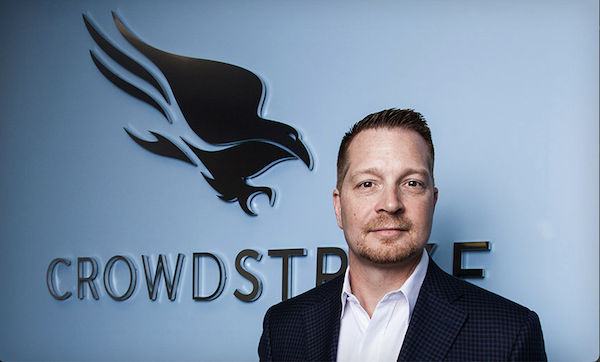Market scorecard
US markets had a tough day on Friday, ending deep in the red. The late-week sell off couldn't spoil August's gains, with the S&P 500 up 1.9% for the month after hitting five new intra-month records. That was the fourth straight monthly advance, which is pleasing.
In company news, heavy machinery maker Caterpillar fell 3.7% after moaning that tariffs will cost them up to $1.8 billion this year. Elsewhere, Celsius rose 5.3% after PepsiCo said it is increasing its stake in the energy drink maker. Finally, Super Micro Computer dropped 5.5% as it warned of weaknesses in its financial reporting controls, saying unresolved issues could affect its ability to deliver results accurately and on time. Stay away from that turd.
On Friday, the JSE All-share closed down a tiny 0.02%, the S&P 500 fell 0.64%, and the Nasdaq was 1.15% lower. Sad and disappointing.
Our 10c worth
Bright's banter

Cybersecurity company CrowdStrike is the smallest Vestact-recommended stock by market cap, at just $105.6 billion. Their latest quarterly results, out last week, showed good momentum. They added a record $221 million in recurring revenue, lifting total sales 21% to $1.17 billion, and crossed 1 000 customers on their Falcon Flex model.
Demand for their cloud, identity, and security products jumped more than 40%, showing that customers are doubling down and buying more products rather than spreading budgets across multiple vendors. CEO George Kurtz is still aiming for $10 billion in annual subscriptions by 2031, and based on this quarter, he's ahead of schedule.
Free cash flow and profits also hit new highs, showing the business is scaling well and proving growth isn't coming at the expense of cost discipline. On top of that, CrowdStrike announced a deal to buy Onum, a data pipeline startup that should turbocharge CrowdStrike's next-gen security monitoring offering, critical in a world where controlling and making sense of security data is the real moat.
CrowdStrike is pushing customers to adopt more modules faster, compressing the sales cycle and deepening wallet share. For us investors, it means the story is less about whether demand exists and more about how quickly the company can scale into it.
One thing, from Paul

There are some people who are afraid of heights. I don't mean acrophobia, which is the intense anxiety some get when looking over the edge of a high building.
I'm referring to people who get panicky when the stock market is at record highs. Instead of staying invested for further gains, they want to "lock in" their slender profits.
A Vestact client shared a message with me over the weekend, that was sent to her by a friend. It included these lines: "I fear the markets, most now around all-time highs, and way past representing value in every sense of measurement. So don't sit without realising your profit in the stock markets, get the f--- out! A crash is long overdue, don't wait for it!"
I was asked for my comments, and I was quite blunt.
Views like that are nothing new, just the same knee-jerk ramblings about the market that people like to send around. The older people get, the more frequently they imagine that things have "peaked". Those fears are confirmed by attention-seeking news outlets and pundits.
That person is not right about current market valuations. They are in line with historical levels, when factoring in rising profits. The past earnings season was very strong, and we expect further growth to be driven by lower tax rates and the deployment of AI systems. Consumer demand is strong and corporate margins are widening.
Most of the Trump tariff shock is behind us. The Fed is about to cut rates. The Fed's forecast of third quarter US GDP just got raised to an annualised 3.5%.
It's not unusual to be close to market highs. In fact, according to research from Bespoke Investment Group, the S&P 500 has spent 44% of trading days since 1952 within 5% of an all-time high.
In other words, it's not Doomsday, it's just Monday.
I finished with this comment: "For the record, I own all the same stocks that you do, and I'm fully invested."
Byron's beats

I thought Apple Music would eventually crush Spotify but I was wrong. I thought that due to Apple's loyal client base, historical domination in music (remember iPods) and unlimited capital and talent, they would easily win the music streaming wars.
Spotify's superior algorithms, slicker interface, and better playlist tools have garnered them nearly 700 million monthly users. Well done to them. Apple pales in comparison with just 75 million monthly listeners.
I recently started watching the Netflix series 'The Playlist,' which is about Daniel Ek and his founding of Spotify. It's a fantastic story, and I highly recommend it if you enjoy those types of shows.
Michael's musings

'Taxing the rich' is a very politically-charged topic. If you are reading this newsletter, the odds are that you don't share the view that every billionaire is a "policy failure". Left-wing politicians are usually campaigning on some sort of promise to tax the rich more, which can include crazy ideas like taxing unrealised capital gains.
The Biden administration frequently claimed that US billionaires paid just 8.2% of their income in taxes. You can understand why that figure fired up their supporter base.
A recent study from the University of California in Berkeley, found that the 400 richest Americans pay a much higher average tax rate of 23.8%. One of the biggest reasons for arriving at this higher tax number is that they include corporate taxes paid by billionaires.
Trying to figure out what the rich pay in taxes is very difficult. Simple questions like, 'what is their income', can have multiple answers. As you would expect, the Biden administration used the broadest possible definition of income, but were more narrow with what taxes they included in the calculations.
Remember that the rich pay the bulk of the tax collected in most countries in absolute money terms. There aren't many of them, but their actual contributions are enormous.
You want as many rich people in your country as possible. The UK recently changed their tax laws to target the rich, and the result is that around 28 000 millionaires have left the country in 2024 and 2025, about the same as the total for the previous decade.
Linkfest, lap it up
Leaving AI to its own devices can lead to negative outcomes. AI-written news articles can confuse AI trading bots - An insurance company's stock got toppled by a wave of slop.
Sports stars get the big bucks. The PGA Tour used to be stingy, but competition from LIV has forced them to change - Nine golfers made over $10 million this season.
Signing off
In Asia, Alibaba shares got a lift after the company reported stronger revenue driven by AI projects. Meanwhile, BYD posted a surprise drop in quarterly profits due to intense price competition in China's EV market.
In local company news, Truworths' full-year headline earnings per share fell 8%, hit by heavier markdowns locally and ongoing investment in its UK unit. Meanwhile, Super Group guided for flat to slightly lower annual earnings, after the R7.5 billion sale of its Australian fleet management business.
US markets are closed today for Labor Day, so this afternoon will be very boring. The Rand is trading at around R17.65 to the US Dollar.
Happy Spring Day in the southern hemisphere. If you are in the northern hemisphere, sorry, summer's nearly over.